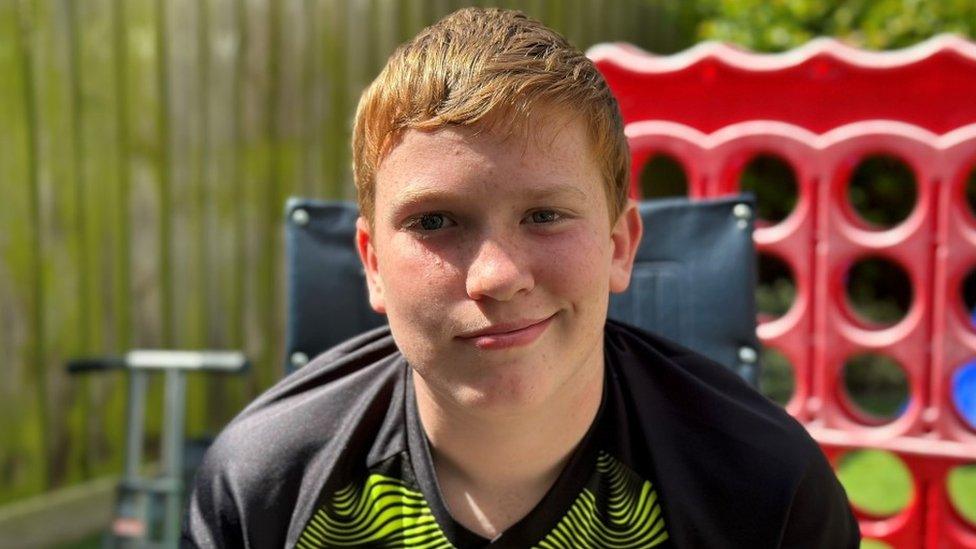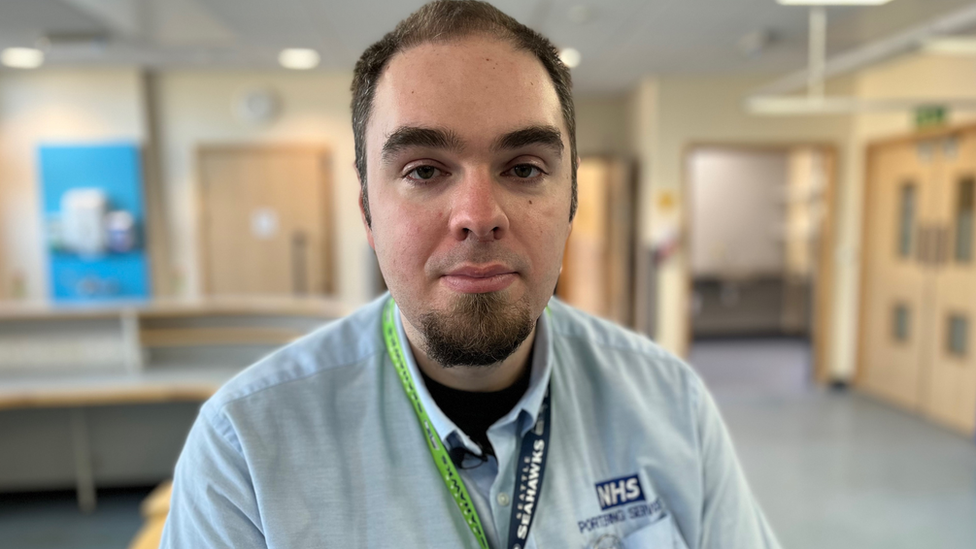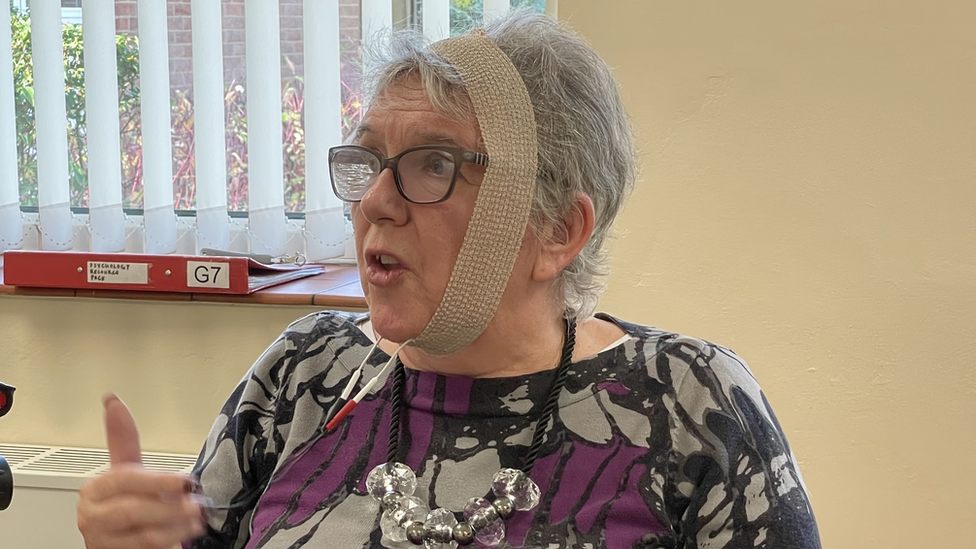World-first stroke study gets £1.3m boost

Jim Waters has taken part in previous trials looking at the effectiveness of SIGHT
- Published
A university said it would conduct the world's largest clinical trial on a new therapy to treat some stroke survivors.
Spatial inattention grasping therapy – known as SIGHT – uses balancing rods to help patients who have lost attention or awareness to one side of their body.
The University of East Anglia (UEA) in Norwich has been awarded £1.26m to test the new therapy following small "promising trials".
The study, which starts in January, will take place at eight major stroke centres across England, including Cambridge University Hospitals and the Norfolk and Norwich University Hospital.

The major trial is expected to get under way in January
Dr Stephanie Rossit, from the UEA's school of psychology, said an estimated 390,000 out of 1.3 million stroke survivors in the UK suffered from spatial inattention, external.
"Currently there is no effective treatment," said Dr Rossit, who is leading the trial.
"This new trial is helping to fill the gap in the urgent search for successful treatments."
The UEA said previous SIGHT trials involved participants grasping and balancing rods with their less affected hand - and in turn improved their coordination.

Jim Waters is a former company director and foodbank volunteer
Jim Waters, from near Diss, Norfolk, had a stroke while driving in 2021.
He took part in trials at the UEA, and said following a significant improvement, he was reissued his driving licence.
"Living around here and not being able to drive would have made life very difficult – in fact, we would have had to move," he explained.
"It's meant I can live in this house comfortably, I don't have to worry about moving at the moment and I can drive where I need to.
"Without the help I've had I just don't know what I would have done… It literally feels like getting your life back again."

The trial will measure grasping, vision, cognition, stroke severity and brain structure
A stroke is caused by blood supply being cut off to part of the brain, external, killing brain cells.
The SIGHT trial is expected to run until February 2028 and is expected to involve 206 stroke survivors with spatial inattention.
All will have an MRI scan but only some will receive SIGHT therapy.
The study is being funded by the Efficacy and Mechanism Evaluation Programme, which is a partnership between the National Institute for Health and Care Research and the Medical Research Council.
Scientists said the results could help treat stroke patients around the world.
Get in touch
Do you have a story suggestion for Norfolk?
Follow Norfolk news on BBC Sounds, Facebook, external, Instagram, external and X, external.
Related topics
- Published24 September 2023

- Published2 February 2023

- Published1 November 2022
